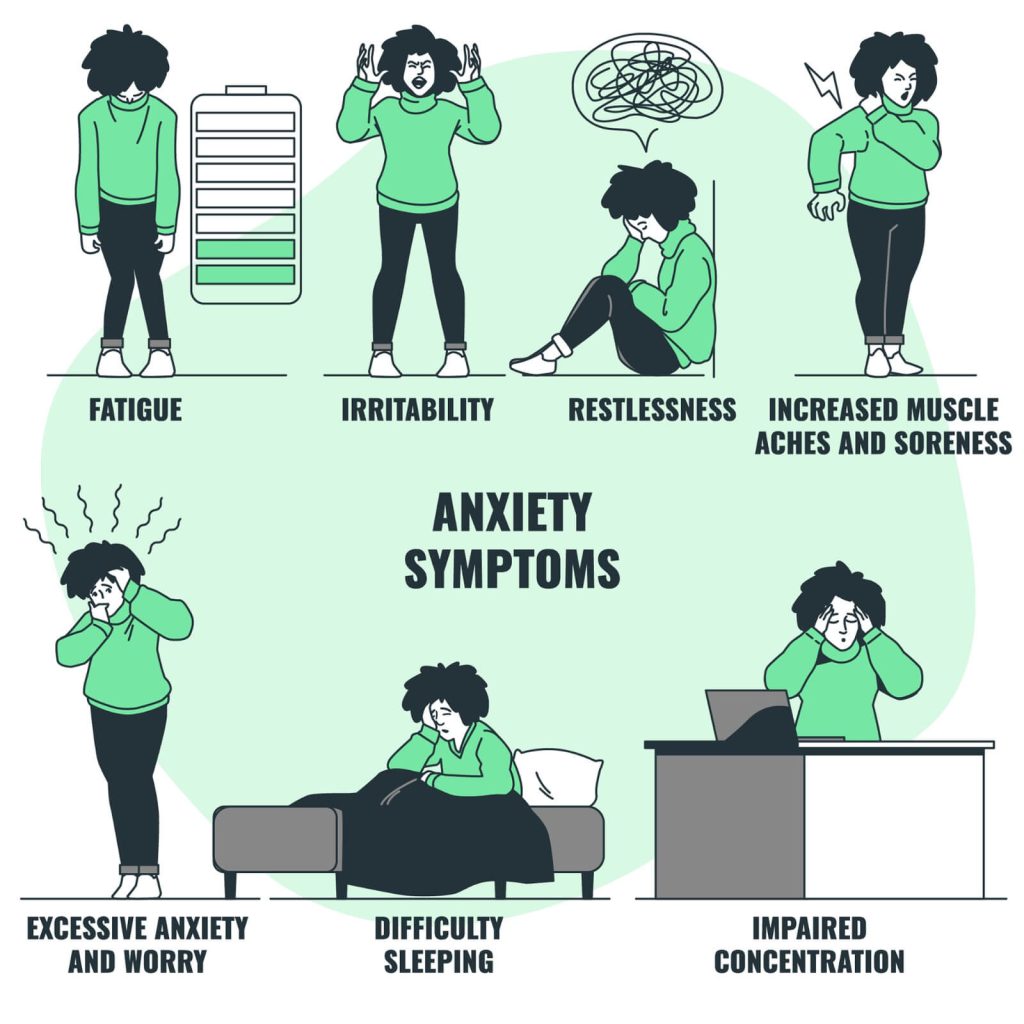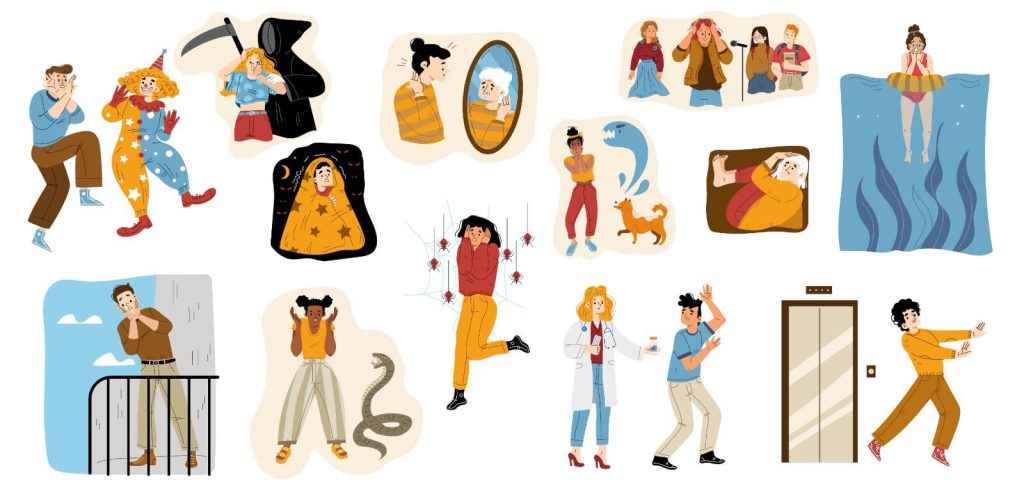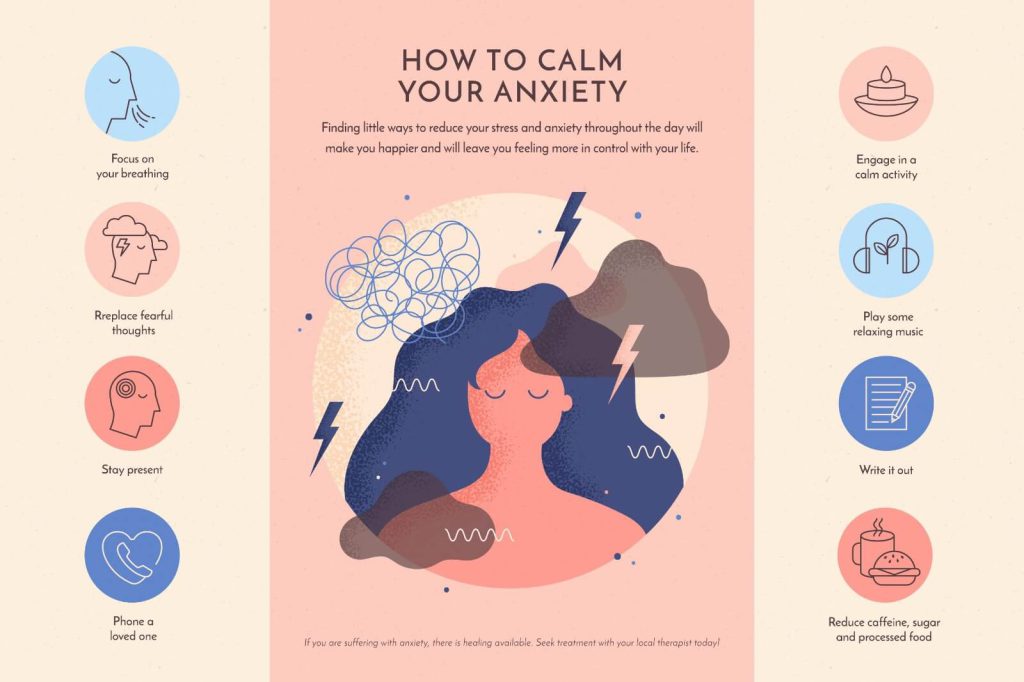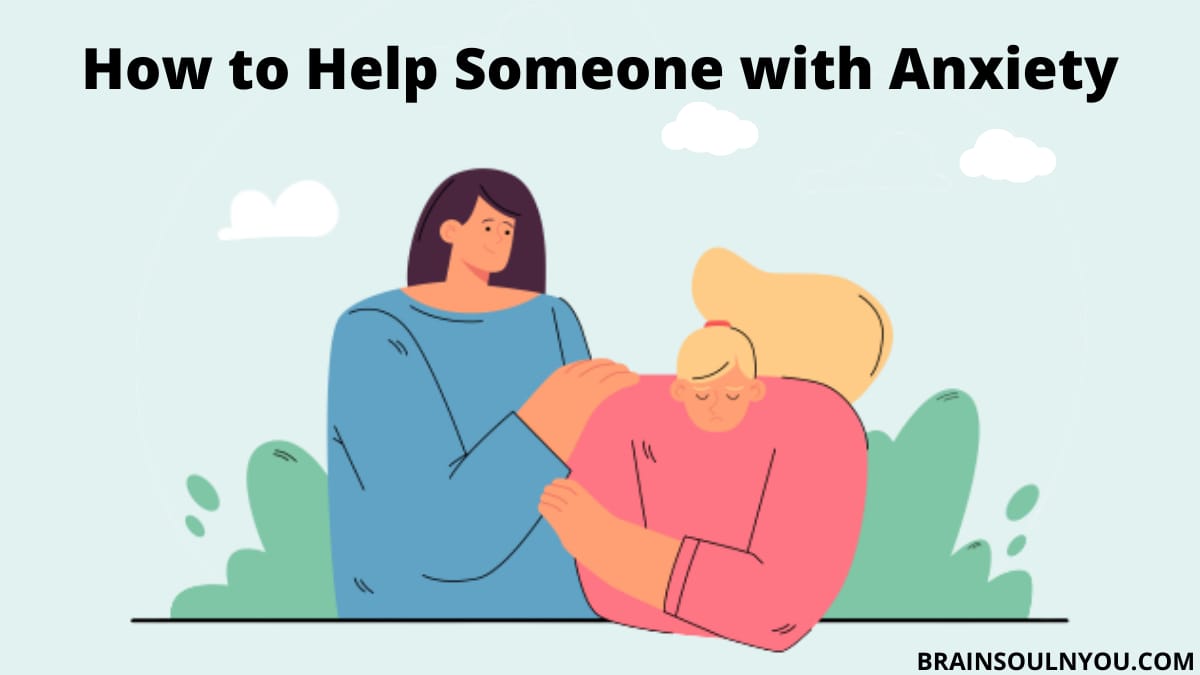Being bound by anxiety is like being tied with an invisible rope. You feel bound by irrational fear, which keeps you trapped in neutrality, unable to gain any traction to move forward in life.
Fearing the worst-case scenario all the time is a self-defeating cognitive flair that can have paralyzing effects. Instead of advancing in your career or pursuing a new relationship, anxiety war traps you as a passive observer rather than an active participant.
Freedom from the clutches of anxiety is possible.
Fortunately, you can learn how to help someone with anxiety war. Some ways can bring you relief from the excessive anxiety that is keeping you in your life. Learn here how to break through the thought patterns that keep you stuck in a cycle of worry.
What is Anxiety war?
Chances are, at least one out of every five of your friends and family members are struggling with an anxiety war or anxiety disorder. In fact, this is the most common mental health concern in the United States. In the US More than 40 million adults (19.1%) have an anxiety disorder. Most people develop symptoms before the age of 21.
Symptoms of Anxiety
Anxiety war has one thing in common: persistent, extreme fear or worries in situations that are not dangerous. People usually experience one or more of the following symptoms:
Excessive Worry: Persistent and excessive worry or feeling anxious about various aspects of life, such as work, relationships, health, or everyday situations.
Restlessness and Agitation: Feeling restless, on edge, or unable to relax. Individuals may have a sense of being constantly on guard or keyed up.
Fatigue: Feeling tired or exhausted, even without engaging in physically or mentally demanding activities. Anxiety can drain energy and make it difficult to feel refreshed after rest.

Difficulty Concentrating: Trouble focusing, concentrating, or experiencing a “mind going blank” feeling. Anxiety can make it challenging to pay attention or retain information.
Irritability: Feeling easily irritated or having a low tolerance for frustration. Small things may trigger irritability or anger outbursts.
Muscle Tension: Physical symptoms such as muscle tension, aches, or stiffness. This can include tension headaches, jaw clenching, or a tight feeling in the muscles.
Sleep Disturbances: Trouble falling asleep, staying asleep, or having restless and unsatisfying sleep. Anxiety can lead to racing thoughts or intrusive worries that interfere with sleep.
Physical Sensations: Experiencing physical symptoms such as a rapid heartbeat, shortness of breath, chest tightness, dizziness, sweating, trembling, or hot flashes. These symptoms may resemble those of a panic attack.
Gastrointestinal Issues: Digestive problems such as stomachaches, nausea, diarrhea, or irritable bowel syndrome (IBS) can be associated with anxiety.
Avoidance Behavior: Avoiding situations, places, or activities that trigger anxiety or fear. This can include social situations, public speaking, or specific phobias.
Catastrophic Thinking: Engaging in negative or catastrophic thinking patterns, assuming the worst will happen, or imagining the worst-case scenarios.
Hypervigilance: Feeling constantly alert or “on guard” for potential threats or danger, even in situations where there is no immediate risk.
Types of Anxiety Disorder
There are several different types of anxiety disorders recognized by the Diagnostic and Statistical Manual of Mental Disorders (DSM-5), which is a widely used diagnostic manual in the field of mental health.
The following are the primary types of anxiety disorders:
Generalized Anxiety Disorder (GAD): GAD is characterized by excessive and uncontrollable worry and anxiety about various aspects of life, such as work, health, relationships, and everyday situations. The worry is often disproportionate to the actual situation and persists for at least six months.
Panic Disorder: Panic disorder involves recurrent and unexpected panic attacks, which are intense periods of fear or discomfort that peak within minutes. Panic attacks may involve symptoms such as a racing heart, shortness of breath, chest pain, dizziness, and a sense of impending doom. People with panic disorder often worry about future panic attacks and may develop avoidance behaviors.
Social Anxiety Disorder (Social Phobia): Social anxiety disorder involves intense fear or anxiety about social situations, where individuals are concerned about being embarrassed, judged, or humiliated by others. This fear leads to avoidance of social interactions and can significantly impact a person’s personal and professional life.

Specific Phobias: Specific phobias involve an irrational and intense fear of specific objects, situations, or activities. Common phobias include fear of heights (acrophobia), fear of animals (zoophobia), fear of flying (aviophobia), and fear of injections (trypanophobia). Fear and avoidance of the phobic stimulus can cause significant distress and harm.
Agoraphobia: Agoraphobia is characterized by fear or avoidance of situations or places from which escape may be difficult or help may not be available in the event of a panic attack or other distressing symptoms. Individuals with agoraphobia are often afraid of crowded places, public transportation, or being alone outside the home.
Separation Anxiety Disorder: Separation anxiety disorder is primarily diagnosed in children, but it can also occur in adults. It involves extreme fear or anxiety when separated from people with attachment, such as parents or caregivers, and is often accompanied by a reluctance or refusal to be alone or away from them.
Obsessive-compulsive disorder (OCD): Alternating cycles of obsessive fear and compulsive behavioral responses to fear.
Post-Traumatic Stress Disorder (PTSD): Prolonged reactions to experiencing or seeing a traumatic event that includes irritability, flashbacks, insomnia, substance abuse, and avoidance behaviors.
Impact of Anxiety
Anxiety can have a significant impact on various aspects of a person’s life, including their mental, emotional, and physical well-being. Here are some common areas where anxiety can have an impact:
Mental and Emotional Well-being: Anxiety can cause persistent worry, fear, and a sense of unease, making it difficult to relax or feel calm. It can lead to feelings of irritability, restlessness, and difficulty concentrating. Anxiety may also contribute to the development or exacerbation of other mental health conditions, such as depression or substance abuse disorders.
Relationships and Social Interactions: Anxiety can affect relationships and social interactions. It may cause individuals to avoid social situations, isolate themselves, or have difficulty forming and maintaining connections with others. Anxiety can also lead to communication challenges, misunderstandings, and feelings of loneliness or alienation.
Work and Academic Performance: Anxiety can impact work or academic performance. It may make it challenging to focus, complete tasks, or make decisions. Additionally, anxiety can interfere with productivity, creativity, and the ability to meet deadlines, which may lead to additional stress and pressure.

Physical Health: Anxiety can manifest physically, leading to symptoms such as headaches, muscle tension, fatigue, rapid heartbeat, stomachaches, and difficulty sleeping. Prolonged periods of anxiety can weaken the immune system, making individuals more susceptible to illnesses and affecting overall physical well-being.
Daily Functioning and Quality of Life: Anxiety can impact various aspects of daily functioning and quality of life. It may limit individuals’ ability to engage in activities they enjoy or pursue personal goals. Anxiety can also lead to disrupted sleep patterns, changes in appetite, and decreased self-care, which can further impact overall well-being.
Financial Impact: In some cases, anxiety can have a financial impact. It may contribute to difficulties in making financial decisions, managing finances, or maintaining stable employment due to anxiety-related challenges in the workplace.
Overall Well-being: The persistent and intense nature of anxiety can have a cumulative effect on overall well-being. It can erode self-confidence, reduce self-esteem, and create a sense of helplessness or hopelessness. It may also impact an individual’s sense of identity, purpose, and satisfaction with life.
How to Get Rid of Anxiety Disorder?
Getting rid of an anxiety disorder entirely may not be a realistic goal, as anxiety disorders often require long-term management and treatment. However, some effective strategies and approaches can help reduce and manage anxiety symptoms. Here are some steps you can take:
Seek Professional Help: Consult with a mental health professional, such as a psychologist or psychiatrist, who specializes in anxiety disorders. They can provide an accurate diagnosis, evaluate the severity of your condition, and develop an appropriate treatment plan.
Psychotherapy: Therapy, particularly cognitive-behavioral therapy (CBT), is a common and effective treatment for anxiety disorders. CBT helps identify and challenge negative thought patterns and behaviors associated with anxiety. It equips individuals with coping skills and techniques to manage anxiety symptoms and develop healthier ways of thinking.

Medication: In some cases, medication may be prescribed by a healthcare professional to help manage anxiety symptoms. Antidepressants, anti-anxiety medications, or beta-blockers are commonly used for this purpose. It’s important to work closely with a healthcare provider to determine the most appropriate medication and dosage for your specific needs.
Relaxation Techniques: Learning and practicing relaxation techniques can help calm the mind and body, reducing anxiety symptoms. Techniques such as deep breathing exercises, progressive muscle relaxation, meditation, and mindfulness can be beneficial in managing anxiety.
Lifestyle Modifications: Adopting a healthy lifestyle can have a positive impact on anxiety symptoms. Engage in regular physical exercise, eat a balanced diet, get sufficient sleep, and limit the consumption of stimulants like caffeine and alcohol. These lifestyle modifications support overall well-being and can help manage anxiety.
Stress Management: Implement effective stress management techniques to minimize anxiety triggers. This may involve prioritizing tasks, setting realistic goals, practicing time management, and incorporating stress-reducing activities into your routine.
Support Network: Seek support from friends, family, or support groups. Sharing your feelings and experiences with a trusted network can provide comfort, understanding, and valuable perspectives. Support groups specifically focused on anxiety disorders can also offer a sense of community and shared coping strategies.
Self-Care: Prioritize self-care activities that promote relaxation and well-being. Engage in activities that bring you joy, practice hobbies, engage in creative outlets, and ensure you have time for rest and relaxation.
Avoidance and Gradual Exposure: While it is important to avoid situations or triggers that intensify anxiety, gradually exposing yourself to these situations in a controlled manner (known as exposure therapy) can help desensitize and reduce anxiety over time. This approach is often conducted with the guidance of a therapist.
Consistency and Patience: Managing anxiety disorders takes time and commitment. Be patient with yourself and the process. Consistently engage in therapy, follow the recommended treatment plan, and be open to adjusting strategies as needed.
It’s crucial to remember that each individual’s journey with anxiety is unique, and what works for one person may not work for another. It’s important to work closely with a mental health professional to develop a personalized treatment plan tailored to your specific needs. With proper support and treatment, it is possible to effectively manage anxiety and improve overall well-being.
Read, also the Glossary of Mental Health Terms – Different Types of Mental Disorders, Depression: Types, Symptoms, Causes & Treatment, 21 Mind Traps, Relaxation Techniques for Your Life, How to Detox Your Mind? How to Stop Feeling Overwhelmed with Life?
Love,
Saurabh Goel
Saurabh Goel
He is the Founder and CEO of the Training and Counselling Company ‘Brain Soul & You’. He is an NLP Wellness Coach, Life Coach, Brain analyst, and Trainer for Education, Corporate, and Entrepreneurship. For more than 7 years, he delivered presentations on entrepreneurship, mind programming, and motivation. He did his B.tech in IT and later choose to be a successful psychologist. He is helping people in various ways through his counseling and training sessions.


